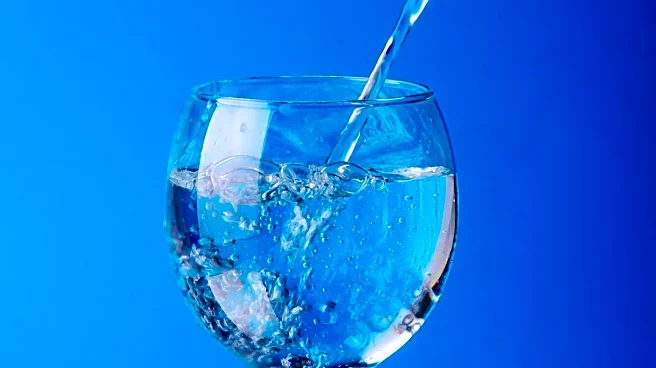What is the story about?
What's Happening?
A recent study published in JAMA Internal Medicine highlights the lack of regulation in the booming IV hydration spa industry, which has grown into a $15 billion wellness sector. These spas offer intravenous vitamin drips, skin care, and cosmetic procedures, often without evidence to support their health claims. Dr. Peter Lurie, president of the Center for Science in the Public Interest, warns of potential dangers to consumers due to the absence of federal health regulations or national standards. The study analyzed 255 clinic websites, finding that more than half offered IV hydration therapy with claims of health benefits like headache relief and immune system boosting, yet only two sites provided tangible sources for these claims. The study also noted that many clinics do not require medical consultations before administering treatments, raising concerns about consumer safety.
Why It's Important?
The unregulated nature of IV hydration spas poses significant risks to consumers, including potential infections and allergic reactions. The industry's rapid growth, combined with the lack of oversight, means consumers may be spending money on treatments without proven benefits. This situation highlights the need for regulatory frameworks to ensure consumer safety and prevent adverse effects. The study's findings could prompt policymakers to consider implementing regulations to protect consumers and ensure that health claims made by these spas are evidence-based.
What's Next?
As awareness of the lack of regulation in the IV hydration spa industry grows, there may be increased pressure on state and federal authorities to establish guidelines and standards. This could lead to legislative efforts aimed at regulating the industry to ensure consumer safety. Additionally, the study's findings might encourage consumers to be more cautious and demand transparency and evidence from wellness providers.
Beyond the Headlines
The rise of IV hydration spas reflects a broader trend in the wellness industry, where consumers seek quick fixes for health and beauty concerns. This trend raises ethical questions about the commercialization of health services and the responsibility of providers to offer safe and effective treatments. The industry's growth also underscores the need for consumer education on the potential risks and benefits of such treatments.
















